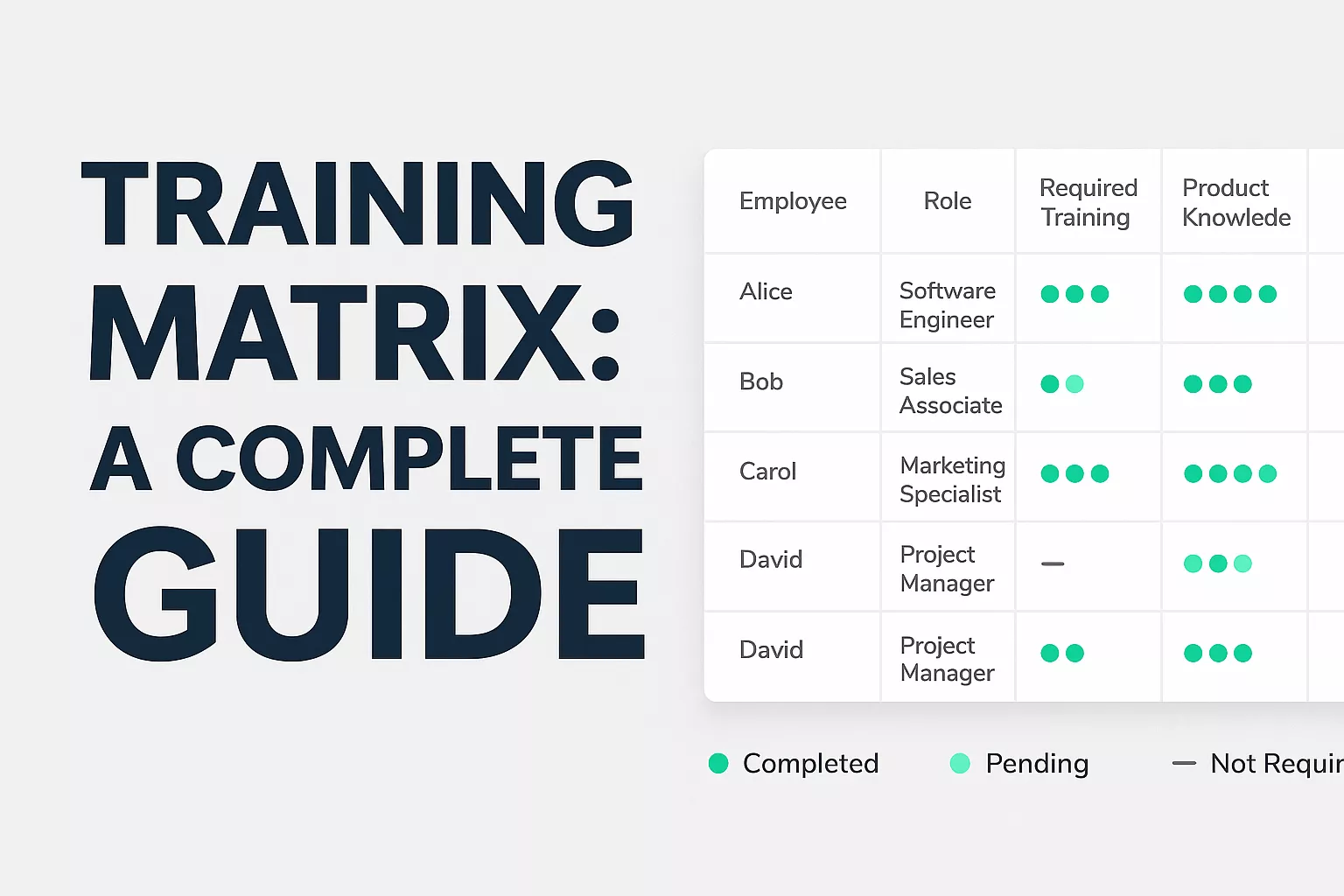by Venchito Tampon | Last Updated on January 26, 2026
How Much Does Sales Training Cost in the Philippines in 2026?
Sales training prices Philippines can range from ₱2,500 to ₱10,000 per participant, per day for public or open-enrollment programs. For in-house or company-exclusive training, rates start from ₱65,000 and can go up to ₱350,000 per session, depending on the program’s depth, duration, and customization level.
Key Factors That Affect Sales Training Costs
The cost of sales training in the Philippines is not fixed. It depends on six major factors, including:
- Types of sales training (field VS inside sales)
- Industry-specific sales examples
- Sales metrics and target integration
- Digital selling and hybrid sales skills
- Commission-based mindset training
- Sales funnel alignment
Understanding these factors will help you plan your training accordingly and avoid unexpected costs. Below is a clear breakdown of how these factors affect the pricing of sales training programs in the Philippines.
1. Type of Sales Training (Field vs. Inside Sales)
The format of sales training (how it is conducted) affects the cost. The content, delivery style, and level of customization will depend on whether you’re training field sales reps or inside sales teams.
Field Sales Training (B2B, FMCG, Industrial)
Field sales training is often used for salespeople who meet clients face-to-face, including teams in B2B selling, fast-moving consumer goods (FMCG), real estate, pharmaceutical sales, or industrial product sales.
These field-sales training programs are more advanced and expensive, as you need to involve real-world selling scenarios, buyer objections, and negotiation techniques during the training. Given that field selling involves high-stakes deals and complex client needs, sales training facilitators must bring deeper industry knowledge, which raises the cost of delivery.
So, the program must incorporate territory planning, in-person relationship building, and face-to-face selling simulations. Customer role-plays should be designed to include the organization’s product, region, or buyer personas so participants can gain insights from observing others selling the same product or service. Having an external view (or a view of a customer) will significantly help them change their outlook on selling.
Conversely, inside sales training focuses on remote sales teams, including call-center agents, appointment setters, online product consultants, and tele-sales teams.
The training here is more structured, focused on scripts, response frameworks, email writing, and handling objections over the phone or via chat. It is also easier and faster to deliver, often through online sessions or half-day workshops. As a result, the cost is lower, and there is less need for heavy customization.
Match your training to your company’s sales model.
Companies that operate in the field with client visits and deal closures will benefit more from in-depth, scenario-based training. Meanwhile, companies that sell remotely or use structured sales scripts can manage with affordable, high-frequency training that builds consistency in sales efforts and communication skills.
2. Industry-Specific Sales Examples
Sales training becomes more expensive when it is designed specifically for your industry. As with today’s standard in corporate training programs, customization becomes a norm (and a requirement for any sales training provider).
Industry-specific programs include real examples, objections, customer types, and selling situations familiar to your team. The level of relevance makes the training more effective and realistic, which increases the sales training cost.
For example, sales teams in industries like pharmaceuticals, insurance, banking, real estate, and tech often deal with regulatory requirements, longer buying cycles, or high-value client concerns. These all require deeper training content preparation, as the trainer may need to study your company’s products, competitive positioning, and market challenges.
Roleplays and scenarios are then tailored to real client conversations, specific sales objections, or industry pain points. This extra work adds to both preparation and sales facilitator fees while increasing the impact of the training, as the examples are more relevant and useful to your team.
Industry-specific training is a smart investment if your team is in a highly regulated, technical, or competitive industry. However, if you’re training new hires or building basic sales habits, a standard program may be more cost-efficient and still effective.
3. Sales Metrics and Target Integration
Sales training becomes more valuable and expensive when designed around your company’s actual sales targets and performance metrics.
Instead of teaching general techniques, these programs focus on improving specific outcomes, such as conversion rates, closing ratios, upsell numbers, average deal size, or lead response times. The level of alignment like this adds planning time. It requires closer collaboration and engagement between the sales trainer and your sales leadership team (usually your sales manager to get to know these numbers.
During the training needs analysis and pre-training sessions, the sales trainer may have to review sales dashboards, call recordings, or pipeline reports to identify real learning gaps in performance. The content is then adjusted to help teams improve in targeted areas.
For example, if conversion rates are low after client demos, the sales training may focus on value articulation and buyer urgency. The session may emphasize pipeline discipline and CRM usage if sales reps miss follow-up opportunities.
The best sales training programs that integrate performance metrics often include post-training tracking as well. Teams may receive action plans, scorecards, or KPI checklists to reinforce learning. While this adds to the total cost, it ensures that the training goes beyond inspiration, as it ties directly to measurable results.
4. Digital Selling and Hybrid Sales Skills
The shift to digital and hybrid selling has changed what sales teams need to learn and act on, as well as the cost structure of sales training programs.
Traditional sales training focused on face-to-face selling, but many buyers today prefer to engage online. So, this means that salespeople must know how to build relationships, present solutions (virtual selling), and close deals using digital tools and virtual platforms.
Sales training programs that include these skills are more complex and usually cost more to deliver.
Digital selling programs often cover skills like using LinkedIn for prospecting, creating video messages, engaging via email sequences, and conducting effective Zoom sales calls. These sales training topics will require the trainer to demonstrate workflows, show best practices on-screen, and use live tools like CRM platforms (e.g., Salesforce, HubSpot), proposal software, or screen-sharing tools.
Sales trainers must have actual experience and be updated with platform changes and current digital communication trends.
Hybrid sales training programs in the Philippines go a step further by teaching sales teams how to switch between in-person and online selling, depending on the buyer’s preferences.
The Filipino sales training program must include modules on adjusting sales pitches across channels, using follow-up automation tools (if any), and tracking engagement across digital touchpoints.
Preparing training design and delivering this type of sales training takes more time, tools, and a tech-savvy trainer, which increases the sales training program cost.
In highly customized and more expensive sales training, participants receive digital selling playbooks, video scripts, or editable templates for outreach. Others get access to online learning platforms developed by the best sales training providers for post-session reinforcement. These valuable resources will improve training impact but also add licensing and development costs.
5. Commission-Based Mindset Training
Sales training in the Philippines becomes more specialized and expensive when it includes modules focused on mindset, motivation, and behavior change.
These are sessions that go beyond product knowledge or types of selling techniques. They focus deeply on how a salesperson thinks, acts, and responds to pressure in a commission-based environment.
Sales training programs include topics like rejection recovery, discipline, self-limiting beliefs, money mindset, and the habits of consistent top performers. Sessions in the program may involve journaling, reflective activities, or guided discussions designed to help salespeople build a strong mental foundation.
Sales training facilitators often have both sales experience and coaching backgrounds, and some specialize in neuroscience, behavioral coaching, or NLP (Neuro-Linguistic Programming).
Neuro-linguistic programming (NLP) is a method for understanding and re-framing thought, language, and behavior patterns. NLP techniques can be applied in training to help salespeople recognize mental blocks, shift negative self-talk, and anchor positive behaviors in real-world selling situations.
For instance, an NLP technique such as anchoring may help sales reps recall a confident state during difficult calls. Reframing exercises may help shift how they interpret objections or rejection. While these strategies have a positive impact on participants’ attitudes and skills, they require a highly skilled trainer and personalized delivery, which increases the cost of the sales training program.
6. Sales Funnel Alignment
Sales training becomes more highly customized when aligned with specific stages of your sales funnel. Instead of simultaneously covering the entire sales process, these sales training programs are designed to strengthen performance in key areas, such as lead generation, discovery, follow-up, closing, or post-sales account management.
This type of sales training in the Philippines requires the provider to understand your current sales workflow, team structure, and pipeline metrics. The content is then focused on fixing fundamental performance gaps.
For example, converting more leads into discovery calls, improving handoff from marketing, adding more sales channels to close more deals, or shortening the sales cycle.
Filipino sales trainers may also use company CRM data, actual pipeline reports, or customer journey maps (“empathy mapping”) to align each session with the team’s responsibilities at different stages of the funnel. The deeper the alignment, the more relevant the training is, and the more time it takes to plan and deliver.
Some sales training programs break training into modules, each tied to a specific funnel stage. For instance, week 1 may focus on prospecting, week 2 on qualifying, and week 3 on closing. These training formats and module arrangements are ideal for B2B sales teams, account executives, or managers who want to isolate weak points and improve step-by-step.
While funnel-aligned training is more strategic and data-driven, it’s not always needed. General or templated sales training may be more suitable for new teams, fast-growth (or fast-pacing) sales environments, or product launches where broader coverage is more efficient.
Pro Tip: Use funnel-aligned training when your team is underperforming in one process stage.
Do you want to train your team with the best sales training program in the Philippines? Send us your training needs and we’ll design a customized sales training for your employees.
The Author
Venchito Tampon
Venchito Tampon is a Filipino motivational speaker, Business Consultant, Founder and Lead Corporate Trainer of Rainmakers Training Consultancy. He trained and spoken in over 250+ conventions, seminars, and workshops across the Philippines and internationally including Singapore, Slovakia, and Australia. He has worked with top corporations including SM Hypermarket, Shell, and National Bookstore.
He also founded SharpRocket, a digital marketing company, Blend N Sips, eCommerce for coffee supplies, and Hills & Valleys Cafe, a local cafe with available franchising.
He is a certified member of The Philippine Society for Talent Development (PSTD), the premier organization for Talent Development practitioners in the country.
An active Go Negosyo Mentor (of Mentor Me program) and a business strategist and consultant.
You may also like
Best Leadership Training Providers in the Philippines [2026]
If you’re short on time: After evaluating 15+ corporate training providers in…
Training Matrix: A Complete Guide
Training mix is a structured framework that helps HR and Learning and…




